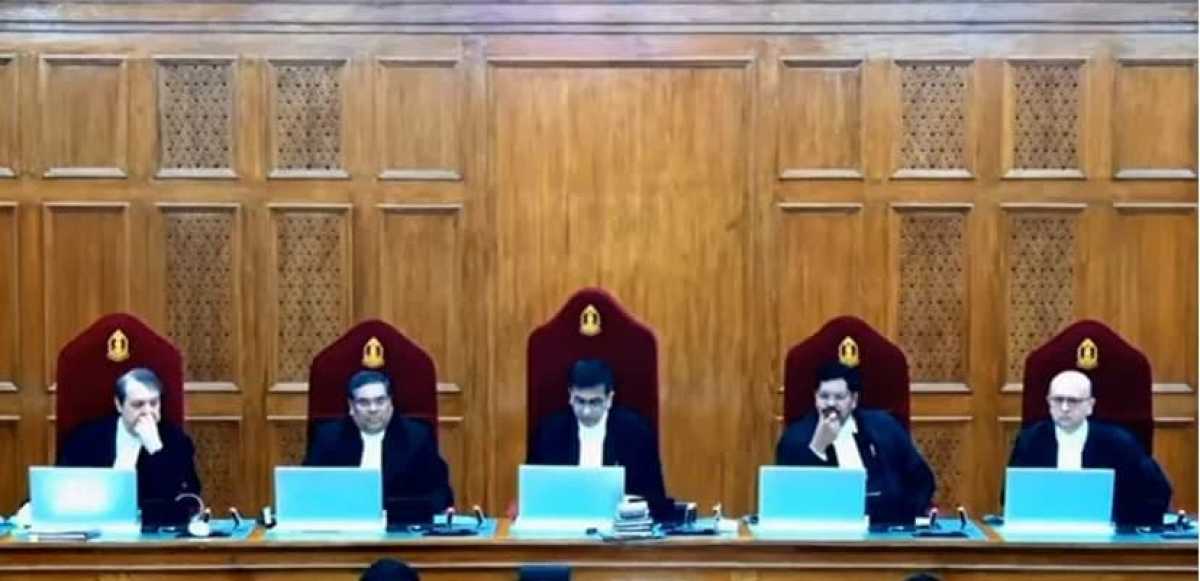Politics
Supreme Court Strikes Down Electoral Bonds Scheme, Orders Immediate Halt

The Supreme Court delivered a groundbreaking verdict on the controversial Electoral Bonds scheme, declaring it unconstitutional. In a unanimous decision, a five-judge Constitution bench, led by Chief Justice, ruled against the Electoral Bonds.
Emphasizing that there are alternative methods to combat illicit financing without impinging on the Right to Information, the apex court criticized the scheme’s impact on freedom of speech and expression under Article 19(1)(a) of the Constitution.
Citing concerns over potential advantages for the ruling party and the risk of quid pro quo arrangements, the bench highlighted the close nexus between money and politics.
As a direct consequence of the verdict, the State Bank of India was ordered to cease the issuance of Electoral Bonds with immediate effect. The bank was directed to disclose all data related to political parties that received Electoral Bonds since April 12, 2019, to the Election Commission of India by March 6.
The Electoral Bonds, introduced in 2018 under the Gazette Notification, have raised over ₹16,500 crore through various tranches. These bonds can only be purchased by eligible entities, including political parties registered under the Representation of the People Act who secured a minimum percentage of votes in previous elections.
Additional insights shared in the Lok Sabha reveal that the government paid commissions to SBI for bond issuance and redemption, while the SPMCIL received funds for printing. The Election Bond Scheme, designed to ensure transparent political funding, is now under legal scrutiny following the recent verdict.












